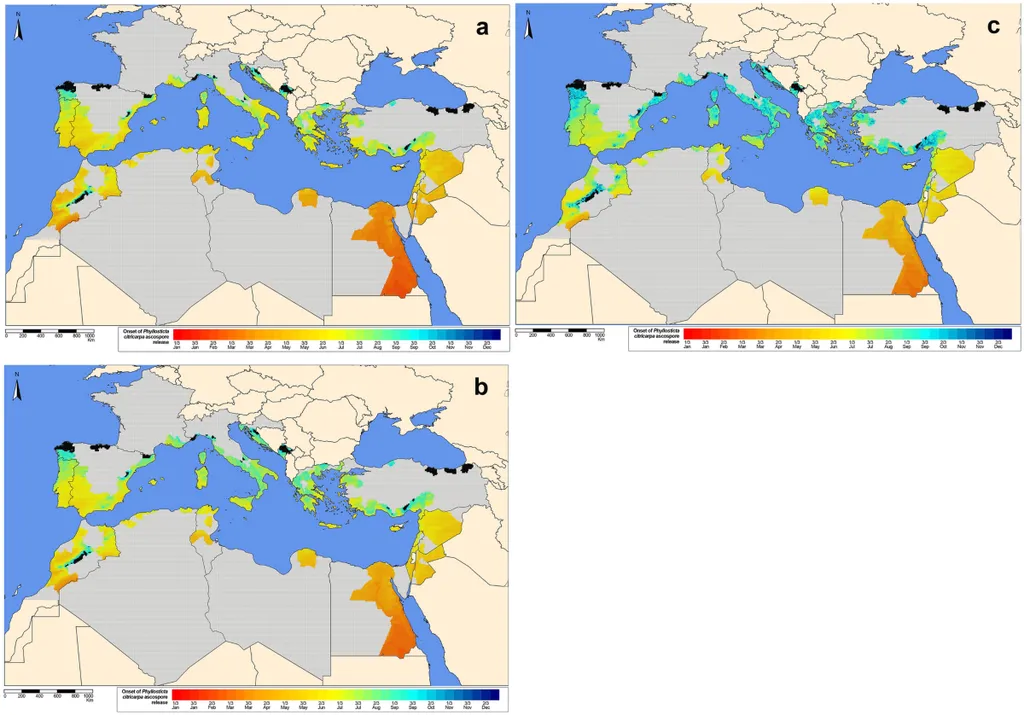In the sun-drenched groves of the Mediterranean, citrus orchards are facing an unprecedented challenge. Climate change is turning up the heat, quite literally, and the region’s citrus crops are feeling the strain. A recent study published in *Scientia Horticulturae* sheds light on the complex interplay of abiotic stresses—drought, heat, salinity, and excessive solar radiation—that are threatening citrus production. The research, led by Damián Balfagón from the Universitat Jaume I in Spain, offers a sobering look at the impacts and, crucially, some promising strategies to adapt.
The Mediterranean Basin is a global powerhouse for citrus production, but its climate is changing rapidly. “The frequency and severity of combined abiotic stresses are increasing, and citrus plants are struggling to cope,” Balfagón explains. The study reveals that when these stresses hit citrus trees simultaneously, they trigger unique physiological and molecular responses. Photosynthetic capacity plummets, oxidative damage escalates, metabolism falters, and yields drop. The commercial implications are significant: reduced productivity and compromised fruit quality could hit farmers’ bottom lines hard.
So, what’s the way forward? The research highlights several promising strategies. For starters, selecting tolerant rootstocks could provide a buffer against stress. Genomics-assisted breeding is another avenue, offering the potential to develop citrus varieties that are more resilient to these combined stresses. Biostimulants, which enhance plant health and productivity, are also gaining traction.
But innovation doesn’t stop at the plant level. Precision irrigation systems, which deliver water more efficiently, and protected cultivation systems, which shield crops from extreme conditions, are becoming increasingly important. The study also points to the role of technology, such as early-warning tools powered by remote sensing and artificial intelligence, in helping farmers stay one step ahead of the challenges.
Balfagón emphasizes the need for a multidisciplinary approach. “We need to integrate omics, agronomy, and digital agriculture to develop climate-resilient citrus systems,” he says. This holistic strategy could be a game-changer for the industry, ensuring that citrus production remains viable in the face of climate change.
The study underscores the urgent need for regionally adapted, multi-factorial approaches to sustain citrus productivity and fruit quality. As the Mediterranean Basin grapples with these challenges, the insights from this research could shape the future of citrus farming, not just in the region but globally. The stakes are high, but so are the opportunities for innovation and adaptation.

